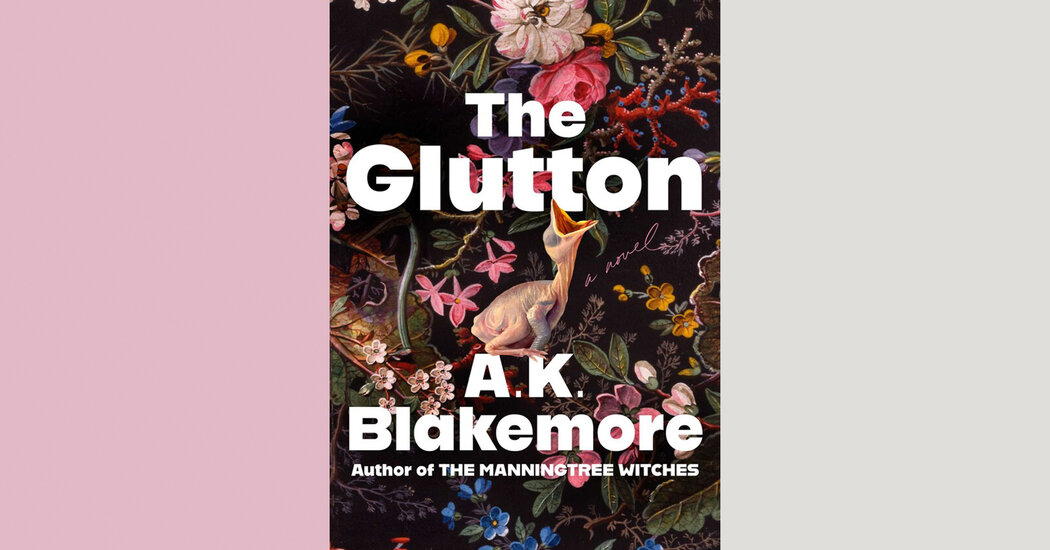Blakemore makes a meal, for sure, out of lavish descriptions of Tarare, “the Hercules of the Gullet,” who “unhooks his jaw like an adder” to swallow a dead rat with “dry peppercorn eyes.” But she also takes in the ruins of war and revolution, men “hauled through the square, their jaws hanging loose from saber cuts, heart’s blood printing roses on their shirt fronts.” A caravan of refugees is a “great eyeless slow worm,” a “floating” parade of the desperate and disenfranchised making their way to Paris beneath the weight of their possessions.
Blakemore evokes the weirdness of sex and flesh and eating, the banal horror of a local lord bathing his feet in a peasant’s blood, drunken revelers setting a cat alight, revolutionaries murdering every dove in an aviary and marching with a gory stag’s head, like a “dire forest king” whose “velvet hangs flayed from his bone crown.”
Every sentence is gorgeous. There’s a dark delight here. When Tarare performs for the first time with his adopted family of thieves, thugs and sex workers, he notices that what he gives the crowd “is a kind of pleasure, and that the more appalling the thing he does, the more pleasure he brings them.”
“Perhaps he is an empty metaphor,” Blakemore winks, as if this isn’t a novel of revolution, deeply socialist and feminist, exploring the privileges of class and gender, a novel preoccupied with bodies, their labor, the marks they make, the humanity within.
When a patronizing doctor tries to tell his medical monstrosity that the new republic believes all men will rise on their merit, and that beneath the skin they are all the same meat, his observation strikes Tarare as asinine. After all, he is a man of “peasant meat,” and has known his whole life that his body is what defines him. “The meat, it matters,” he thinks.


